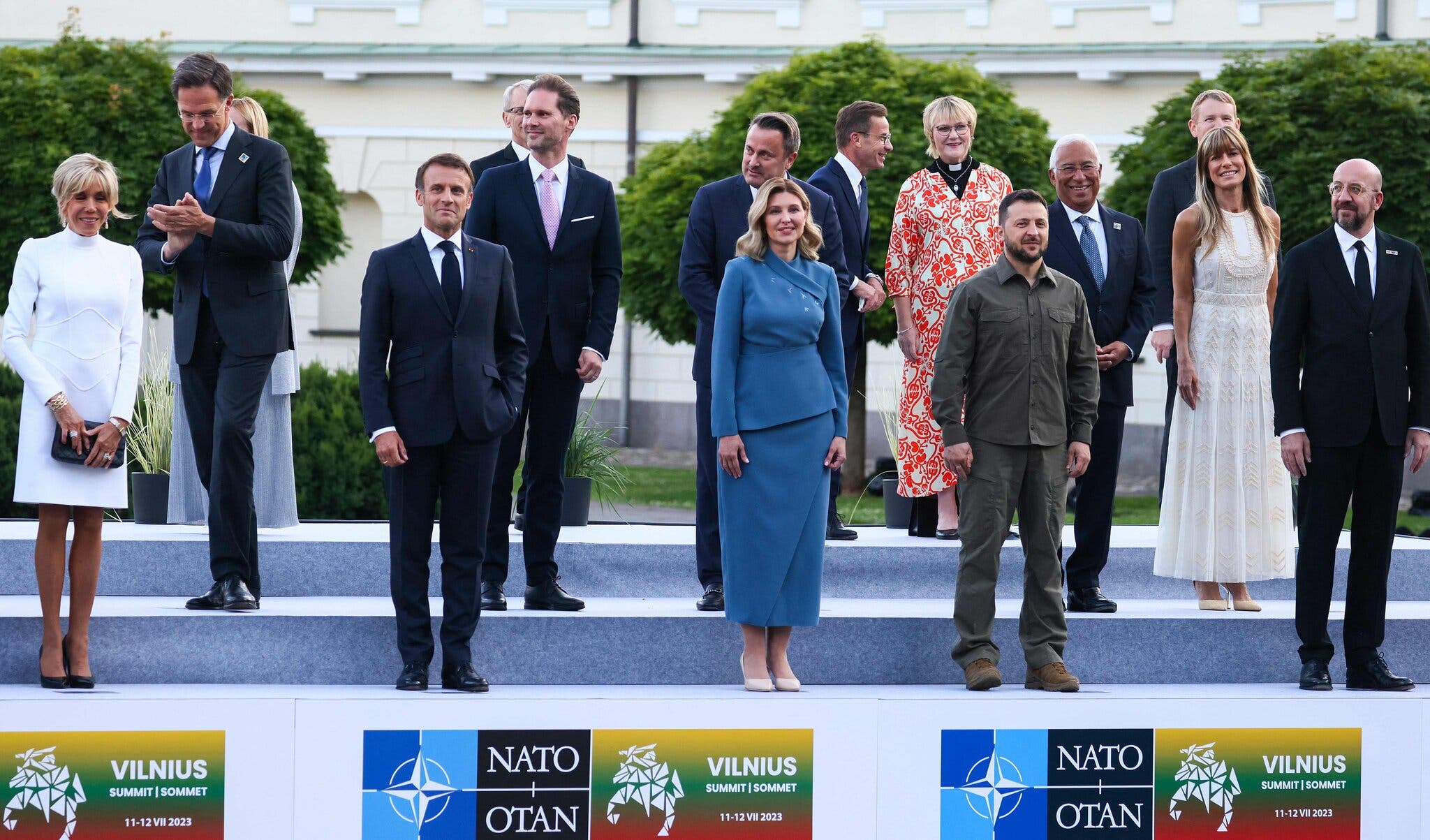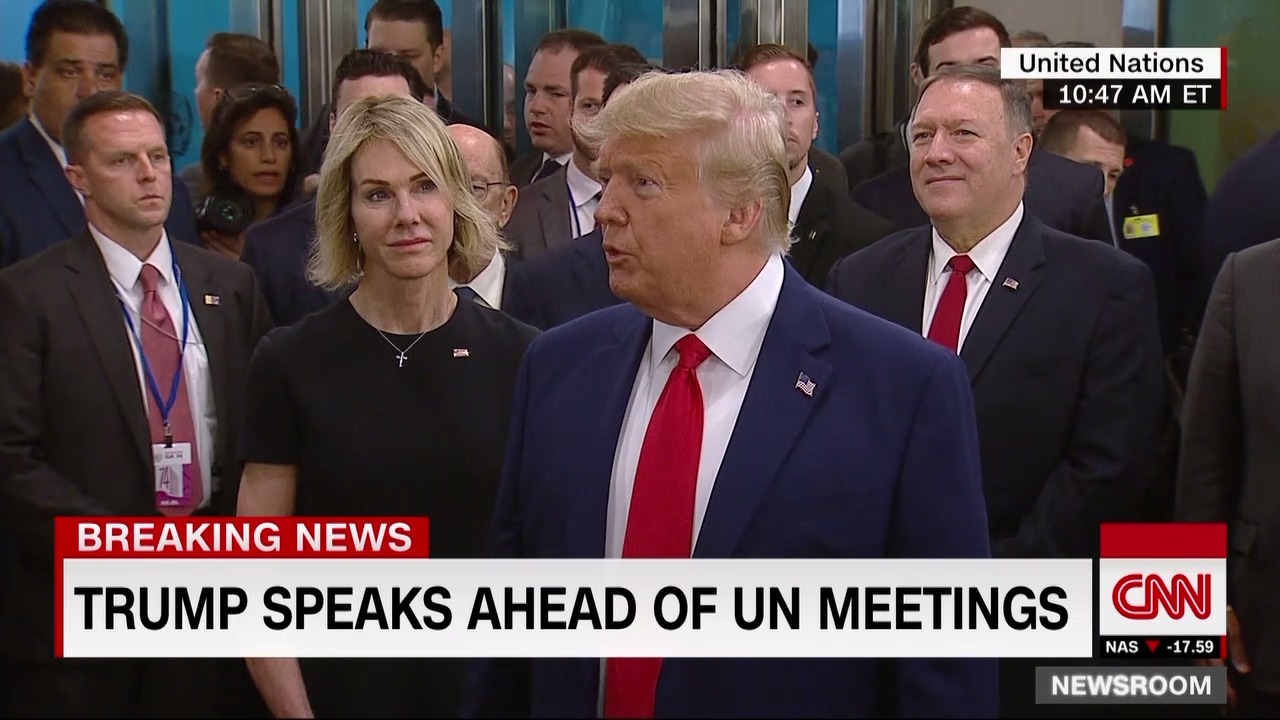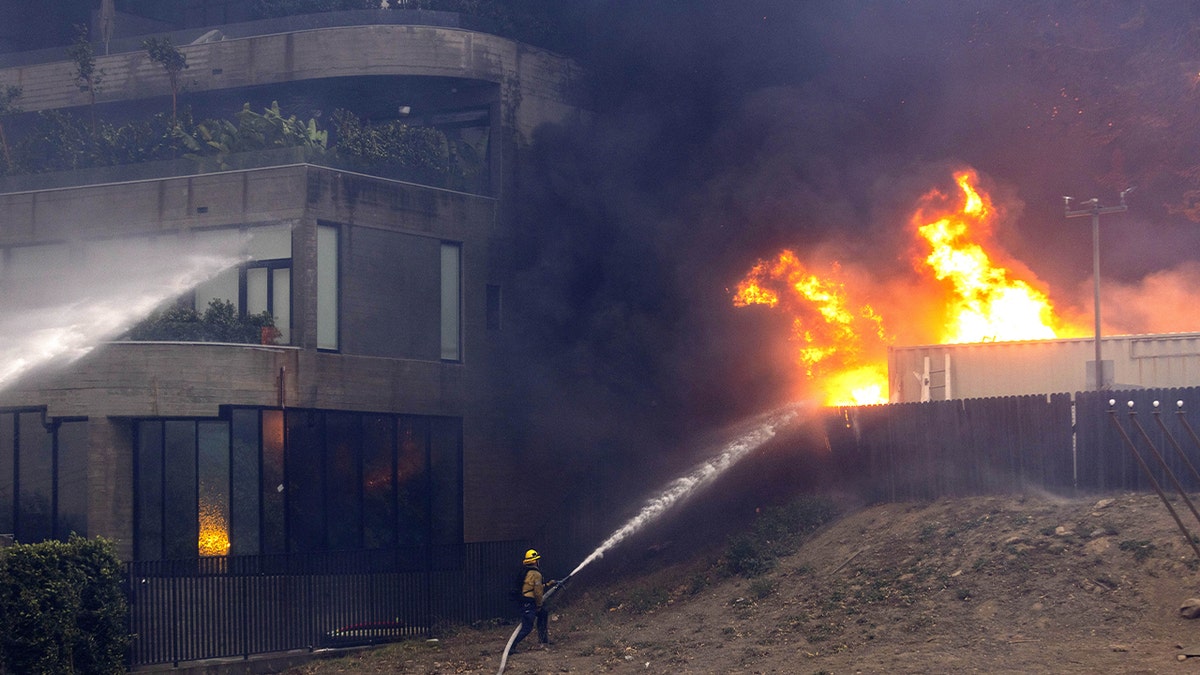Trump On Ukraine And NATO: A Critical Examination

Table of Contents
Trump's Pre-Presidential Stance on Ukraine and NATO
Skepticism Towards NATO's Value
Before his presidency, Trump frequently expressed skepticism about NATO's value, characterizing it as obsolete or unfair to the United States. He consistently highlighted the perceived burden-sharing imbalance, where some member states were not contributing their fair share to collective defense.
- Quotes and Examples: Trump repeatedly referred to NATO as a "bad deal" for the US, suggesting that member nations were not paying their dues. He threatened to withdraw the US from the alliance if these issues were not addressed. These statements were widely criticized by allies who viewed them as undermining the transatlantic security framework.
- Defense Spending Calls: Trump frequently pressured NATO allies to increase their defense spending to meet the agreed-upon target of 2% of GDP. While this call wasn't entirely unreasonable, the manner in which it was delivered – often through public criticism and threats – was seen as disruptive and counterproductive.
- Withdrawal Threat: The threat of US withdrawal from NATO was perhaps Trump's most alarming pre-presidential statement concerning the alliance. This threat sent shockwaves through Europe, raising concerns about the future of collective security and the US commitment to its allies.
Ambivalence Towards Ukraine
Trump's early views on Ukraine were marked by a notable lack of strong, consistent support. This ambivalence contrasted sharply with the prevailing bipartisan consensus in the US regarding the importance of supporting Ukraine's sovereignty and territorial integrity against Russian aggression.
- Statements on Territorial Integrity: While he acknowledged Russia's annexation of Crimea, Trump's statements often lacked the firm condemnation expected from a US leader. This ambiguity fueled concerns about his commitment to defending Ukraine against further Russian encroachment.
- Potential Business Interests: Speculation about potential business interests in Russia and Trump's business dealings in the country fueled concerns about potential conflicts of interest that could have influenced his Ukraine policy. This lack of transparency further contributed to perceptions of his ambivalent stance.
Trump's Actions and Policies During His Presidency
Withdrawal of US Support (or lack thereof)
Trump's actual policies toward Ukraine during his presidency were a source of significant controversy. While the US did provide some military and financial assistance, the level of support was often criticized as insufficient given the escalating conflict with Russia.
- Aid and Military Assistance: While the US continued to provide some aid, the process was often fraught with delays, uncertainty, and political maneuvering. This erratic approach contrasted sharply with the consistent and robust support provided by previous administrations.
- Controversies and Investigations: The withholding of military aid to Ukraine in 2019 became a central element of the first impeachment inquiry against Trump. This fueled accusations of leveraging foreign policy for personal political gain.
Relationship with Putin and Russia
Trump's close relationship with Vladimir Putin and his administration's apparent deference to Russia significantly impacted his approach to Ukraine and NATO. This close relationship raised concerns about potential compromises on the security interests of US allies.
- Meetings and Joint Statements: Trump's frequent meetings and joint statements with Putin often lacked strong public condemnation of Russia's actions in Ukraine, leading to criticisms that he was prioritizing his personal relationship with Putin over the interests of the US and its allies.
- Concessions to Russia: Concerns were raised about potential concessions made to Russia, particularly regarding sanctions and military deployments, which could have undermined the security of Ukraine and NATO. This perception further fueled worries about a potential erosion of US commitment to its allies.
Post-Presidency Commentary and Impact
Continued Criticism of NATO and Support for Putin?
Since leaving office, Trump has continued to express skepticism about NATO and often refrains from directly condemning Russia's actions. This continued rhetoric raises concerns about the potential long-term damage to transatlantic relations and the overall global security architecture.
- Criticism of NATO: Trump's post-presidency statements continue to portray NATO as a burden on the United States and express skepticism about its efficacy.
- Statements regarding Russia: His public statements often refrain from explicitly condemning Russia's aggression in Ukraine, leading to speculation of tacit support for the Russian government. This fuels concerns regarding the impact of his influence on the current geopolitical landscape.
The Lasting Legacy on Transatlantic Relations
Trump's presidency left a lasting mark on US relations with Ukraine and NATO. The implications for global security are profound and far-reaching, potentially weakening the transatlantic alliance and emboldening adversaries.
- Impact on NATO Cohesion: Trump's actions and rhetoric created significant divisions within NATO, raising questions about the alliance's long-term viability and its ability to respond effectively to future threats.
- Ukraine's Security: Trump's ambiguous stance toward Ukraine significantly undermined its security and emboldened Russia to pursue further aggressive actions.
- Geopolitical Landscape: Trump's approach has had a significant and lasting impact on the broader geopolitical landscape, potentially encouraging other authoritarian regimes to challenge the existing international order.
Conclusion:
This critical examination of Trump's approach to Ukraine and NATO reveals a complex and often contradictory record. His skepticism toward NATO, his ambivalent stance towards Ukraine, and his close relationship with Vladimir Putin have had significant implications for transatlantic relations and global security. Understanding the nuances of his actions and statements is crucial for navigating the current geopolitical landscape. Further research and analysis are needed to fully grasp the long-term impact of Trump's legacy on these crucial relationships, and how it might shape future US foreign policy regarding Trump, Ukraine, and NATO. We encourage readers to continue engaging with this critical issue and forming their own informed opinions on the subject.

Featured Posts
-
 Hollywood Strike Actors Join Writers Bringing Production To A Halt
Apr 26, 2025
Hollywood Strike Actors Join Writers Bringing Production To A Halt
Apr 26, 2025 -
 Game Stop Switch 2 Preorder A First Hand Account
Apr 26, 2025
Game Stop Switch 2 Preorder A First Hand Account
Apr 26, 2025 -
 Trump Casts Doubt On Ukraines Nato Aspiration
Apr 26, 2025
Trump Casts Doubt On Ukraines Nato Aspiration
Apr 26, 2025 -
 Florida A Cnn Anchor Shares His Go To Vacation Destination
Apr 26, 2025
Florida A Cnn Anchor Shares His Go To Vacation Destination
Apr 26, 2025 -
 Full List Celebrities Affected By The Palisades Fires In Los Angeles
Apr 26, 2025
Full List Celebrities Affected By The Palisades Fires In Los Angeles
Apr 26, 2025
